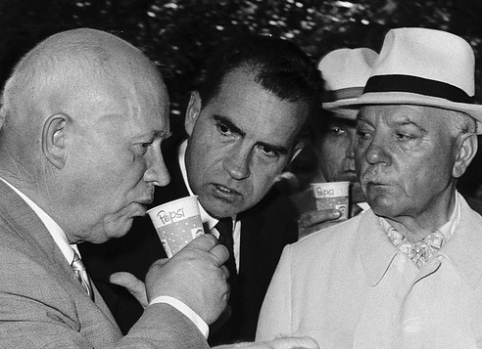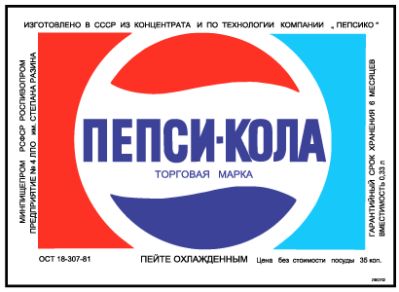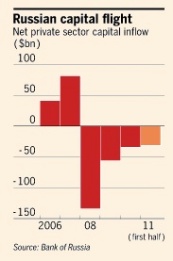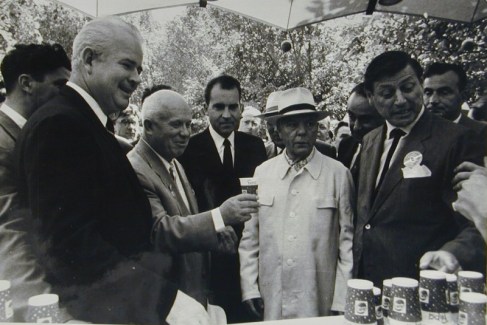Pepsi’s love affair with Russia dates way back to the early days of the cold war. It all started with Nikita Khrushchev taking a harmless sip of the drink at an American trade exhibition in Moscow in 1959.
Donald M. Kendall, himself Former Chairman and Chief Executive Officer of PepsiCo recalls the event as being an, “…inspiring start of a lifelong love affair with Russia…”
According to Kendall, Richard Nixon, the vice-president at the time was instrumental in steering Khrushchev to the Pepsi stand back in 1959.
After the tasting, Khrushchev revealed himself as a Pepsi ‘aficionado’. He urged everyone present to, “Drink the Pepsi-Cola made in Moscow. It’s much better than the Pepsi made in the U.S.”
Fifteen years after the 1959 Pepsi binge, the first Pepsi can was sold in the sparse grocery shelves of the USSR. Due to its horrendous price tag a Pepsi can became more of a trophy item in grocery stores rather than the mass beverage it was in the U.S.
Even in the glasnost era Pepsi remained a rare delight. One would know to impress a date with a can or a western candy bar as it symbolized both sacrifice, some degree of affluence and genuine affection for the counterpart. So did a trip to McDonalds, which often topped of an exclusive date.
Pepsi or “Bebsi” as some of the Russian’s would pronounce it, quickly rose in popular demand as it become somewhat affordable to the masses in the 1990’s.
Today Pepsi is no longer an idle shelf-item but part of one of Russia’s largest and most vibrant multinational investors. PepsiCo at large has invested $19bn in Russia, at a time were increasing amount of investors are worried with Russia’s authoritarianism and at times, its volatile political situation.
Some have even suggested that the “country is going down the toilet” and that its kingpin Vladimir Putin is in ”la la land” when it comes to the budget.
More and more firms seem to share the same sentiment. Russian capital flight has been negative for three consecutive years now.
The business climate in Russia seems to have emulated the harsh Russian winter as even the most loyal of oligarchs have started to ship out their capital. Mikhail Prokhorov, the country’s third richest man recently securing a London listing for his Polyus Gold miner.
Steven Dashevsky, managing partner of Dashevsky & Partners sums up the situation in a more subtle tone when he suggests that, “…for rational investors there are just not that many reasons to invest in Russia any more.”
Yet Pepsi seems to defy the mainstream. Back in October of 2011 it announced plans to invest an additional $1bn in the Russian market. AIndra Nooyi, PepsiCo’s chief executive made the announcement after several meetings with Putin. It seems that as many western companies struggle to breakthrough in the Russian market, that PepsiCo has greased the wheels in just the right places.
The close cooperation of both PepsiCo and the Kremlin has ensured smooth acquisitions such as PepsiCo’s deal last year in which it acquired Wimm-Bill-Dann, the Russian dairy producer for a whopping $5.4bn.
Indra Nooyi applauds Russia for being a “well-managed country” a euphemism for the preferential treatment which PepsiCo seems to enjoy. Furthermore Nooyi has stressed the positive record of the Russian government in helping PepsiCo, “through regulation and licenses”.
From all these comments it has become clear that PepsiCo had devised a very effective strategy of clearly de-coupling polemic politics and business and immersing itself fully into the Kremlin community. A strategy which bears risk but has paid of well for the American multinational.
Richard Nixon may be best known for his bold China visit in 1972, yet it seems that without Tricky Dick’s Pepsi stunt back in 1959, Pepsi would have not have the overwhelming success it has today in Russia.






